Arushi
An Agent-Based Modeling Approach to Free-Text Keyboard Dynamics for Continuous Authentication
May 08, 2025Abstract:Continuous authentication systems leveraging free-text keyboard dynamics offer a promising additional layer of security in a multifactor authentication setup that can be used in a transparent way with no impact on user experience. This study investigates the efficacy of behavioral biometrics by employing an Agent-Based Model (ABM) to simulate diverse typing profiles across mechanical and membrane keyboards. Specifically, we generated synthetic keystroke data from five unique agents, capturing features related to dwell time, flight time, and error rates within sliding 5-second windows updated every second. Two machine learning approaches, One-Class Support Vector Machine (OC-SVM) and Random Forest (RF), were evaluated for user verification. Results revealed a stark contrast in performance: while One-Class SVM failed to differentiate individual users within each group, Random Forest achieved robust intra-keyboard user recognition (Accuracy > 0.7) but struggled to generalize across keyboards for the same user, highlighting the significant impact of keyboard hardware on typing behavior. These findings suggest that: (1) keyboard-specific user profiles may be necessary for reliable authentication, and (2) ensemble methods like RF outperform One-Class SVM in capturing fine-grained user-specific patterns.
Voice Analysis for Stress Detection and Application in Virtual Reality to Improve Public Speaking in Real-time: A Review
Aug 01, 2022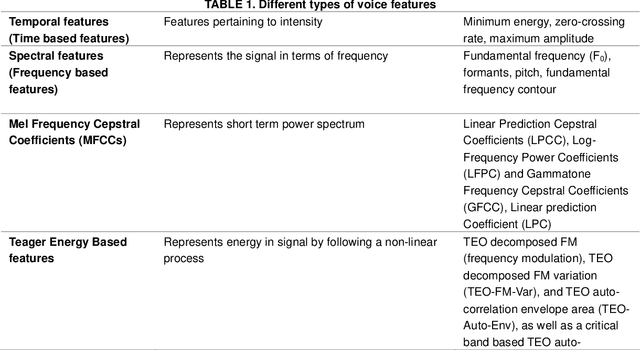
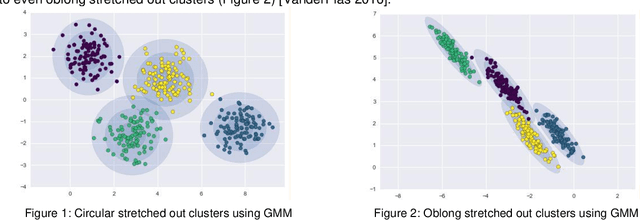
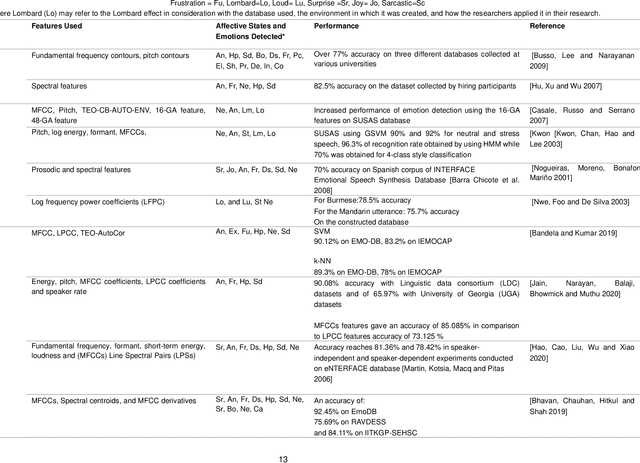
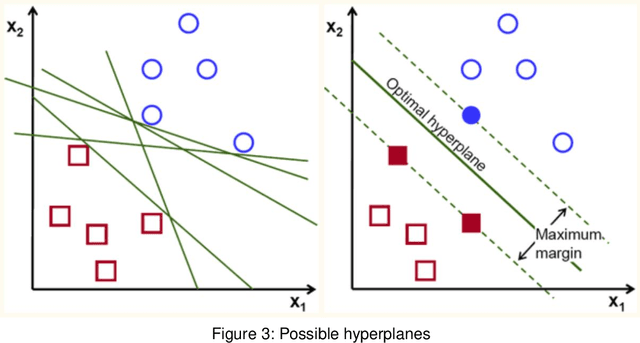
Abstract:Stress during public speaking is common and adversely affects performance and self-confidence. Extensive research has been carried out to develop various models to recognize emotional states. However, minimal research has been conducted to detect stress during public speaking in real time using voice analysis. In this context, the current review showed that the application of algorithms was not properly explored and helped identify the main obstacles in creating a suitable testing environment while accounting for current complexities and limitations. In this paper, we present our main idea and propose a stress detection computational algorithmic model that could be integrated into a Virtual Reality (VR) application to create an intelligent virtual audience for improving public speaking skills. The developed model, when integrated with VR, will be able to detect excessive stress in real time by analysing voice features correlated to physiological parameters indicative of stress and help users gradually control excessive stress and improve public speaking performance
A Machine Learning Application for Raising WASH Awareness in the Times of COVID-19 Pandemic
Apr 18, 2020
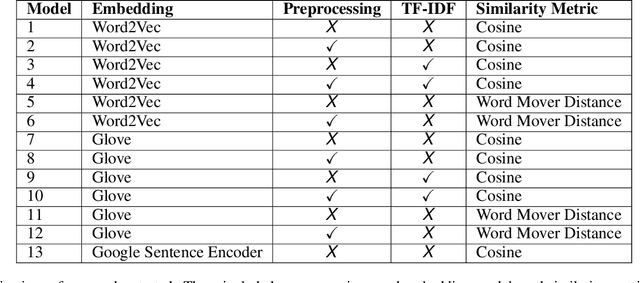

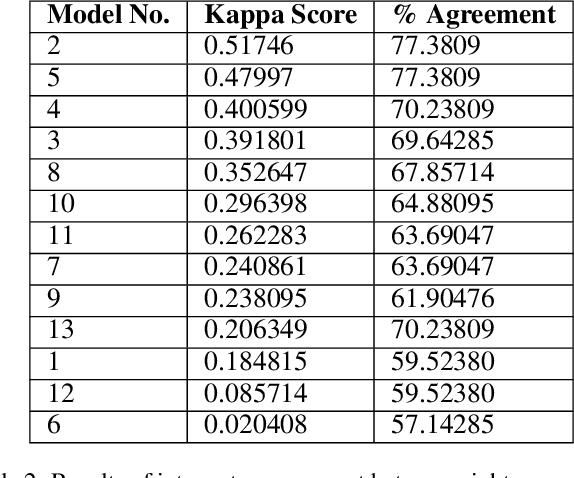
Abstract:Proactive management of an Infodemic that grows faster than the underlying epidemic is a modern-day challenge. This requires raising awareness and sensitization with the correct information in order to prevent and contain outbreaks such as the ongoing COVID-19 pandemic. Therefore, there is a fine balance between continuous awareness-raising by providing new information and the risk of misinformation. In this work, we address this gap by creating a life-long learning application that delivers authentic information to users in Hindi and English, the most widely used languages in India. It does this by matching sources of verified and authentic information such as the WHO reports against daily news by using machine learning and natural language processing. It delivers the narrated content in Hindi by using state-of-the-art text to speech engines. Finally, the approach allows user input for continuous improvement of news feed relevance daily. We demonstrate this approach for Water, Sanitation, Hygiene information for containment of the COVID-19 pandemic. Thirteen combinations of pre-processing strategies, word-embeddings, and similarity metrics were evaluated by eight human users via calculation of agreement statistics. The best performing combination achieved a Cohen's Kappa of 0.54 and was deployed as On AIr, WashKaro's AI-powered back-end. We introduced a novel way of contact tracing, deploying the Bluetooth sensors of an individual's smartphone and automatic recording of physical interactions with other users. Additionally, the application also features a symptom self-assessment tool based on WHO-approved guidelines, human-curated and vetted information to reach out to the community as audio-visual content in local languages. WashKaro - http://tiny.cc/WashKaro
 Add to Chrome
Add to Chrome Add to Firefox
Add to Firefox Add to Edge
Add to Edge